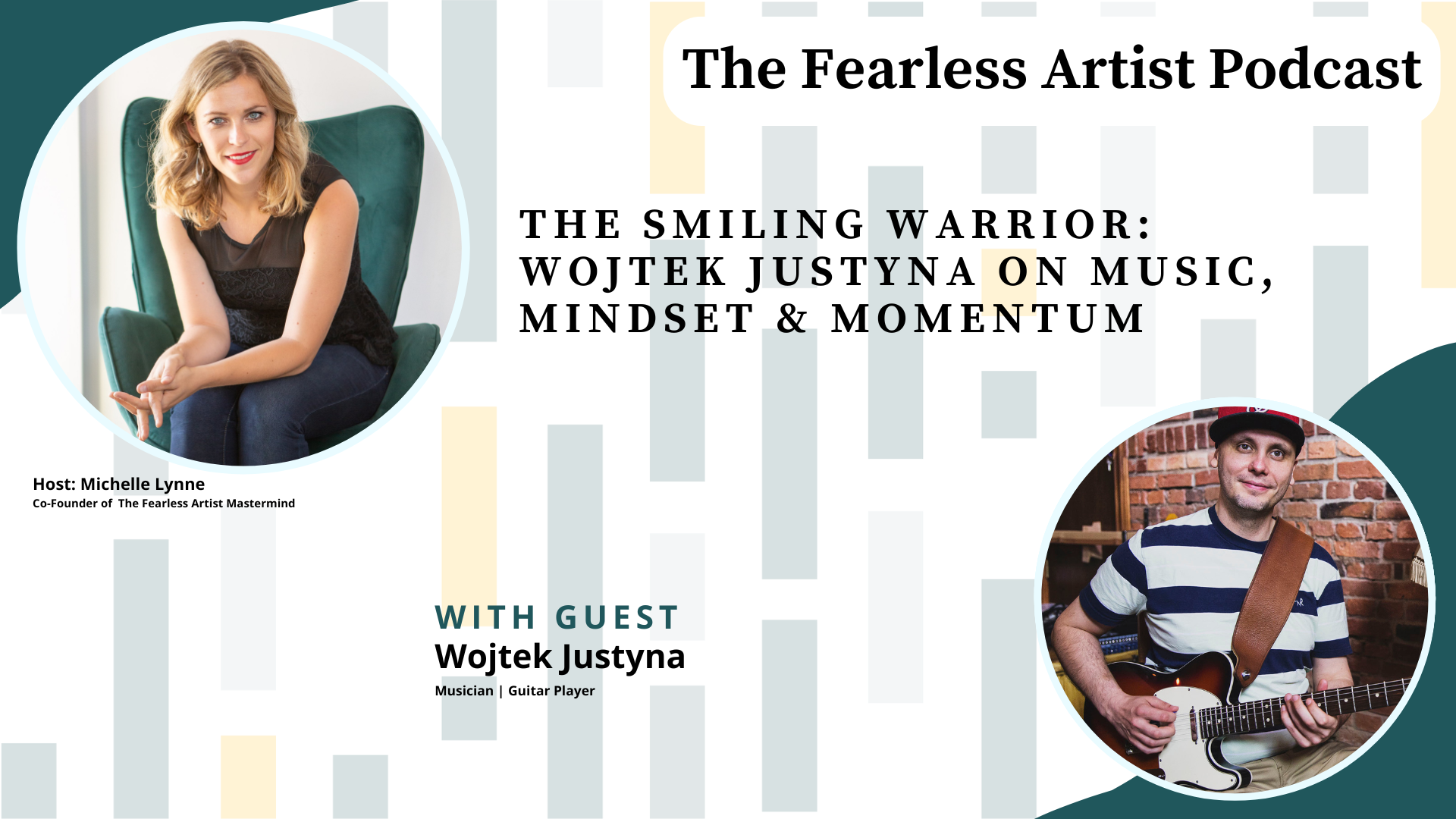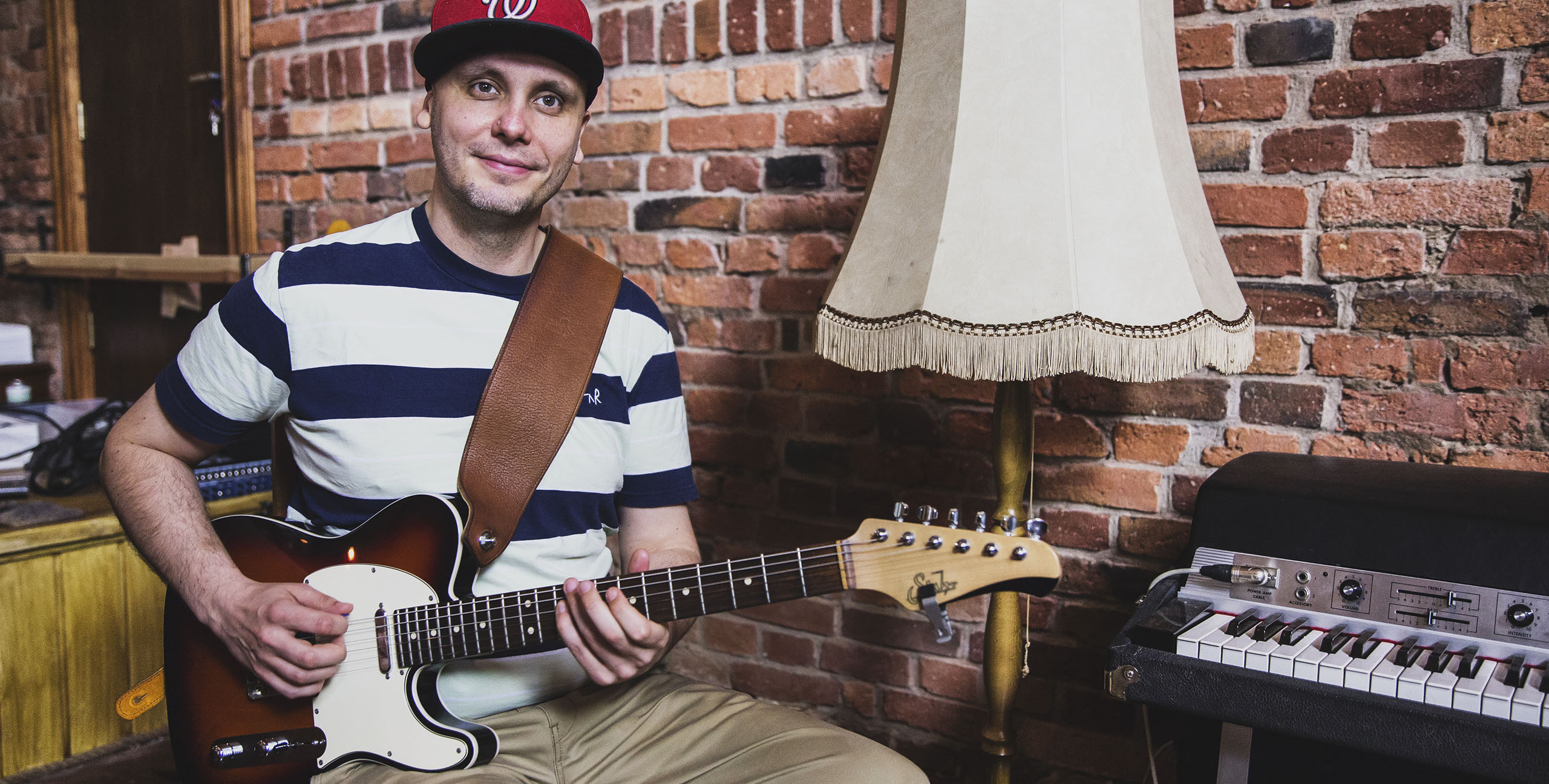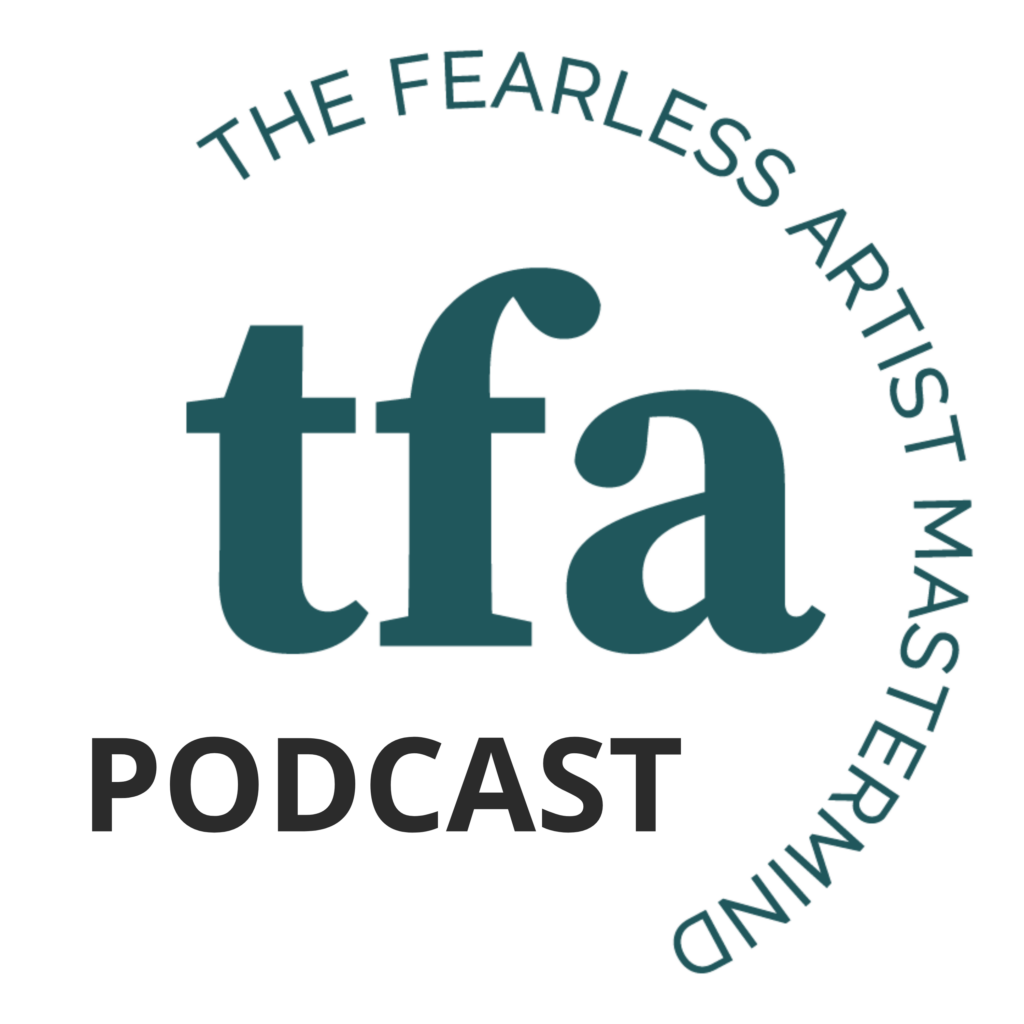The Smiling Warrior: Wojtek Justyna on Music, Mindset & Momentum

Guest:
Wojtek Justyna
Musician | Guitar Player
Wojtek Justyna is a guitar player recognized for his sound, versatility and creativity. Although inspired by Rock and Blues he began playing classical guitar at the age of 14. He studied classical music for 9 years and during this time was awarded honorable mentions at a local guitar competition in his home town of Lodz, Poland. After joining a school big band called AB Sound Band he started developing an interest in Jazz and in 2000 he began studying at the Jazz Department at the Karol Szymanowski Academy of Music in Katowice. During his studies he became a member of The Big Band of the Academy of Music and “Gazeta Wyborcza” in Lodz. At the same time Wojtek began to write his own music and formed his own contemporary jazz band called “3Karo” with which he toured in Poland, performed on national radio and television and was awarded the GRAND PRIX at the II Miles Davis Jazz Improvisation Competition (2003) and received Honorable Mentions at the VII Competition for Aspiring Jazz and Blues Combos (2004).

Subscribe to The Fearless Artist Podcast
Intro/Outro music by Michelle Lynne • Episode produced by phMediaStudio, LLC
